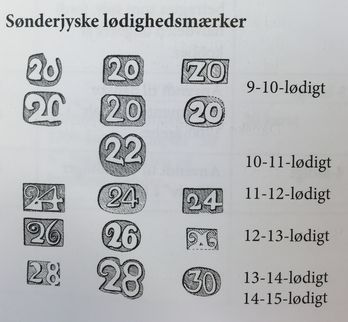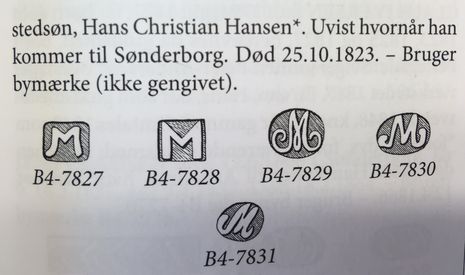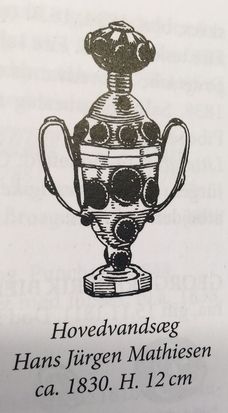Hi,
this concerns Steve's spoon and Aguest's question.
20 = 9-10 lot

Source: Danske guld- og sølvsmedemærker før 1870. 4. udgave, revideret og udvidet af Henrik Jakobsen,
Syddansk Universitetsforlag 2022, 768 sider, p. 16
Up until the 1870s, the fineness of silver was calculated differently than it is today.
The basis was the medieval classification of weight in pounds and lots.
The pound was about
467 grams, at least according to a sample weight from 1705 still in
Cologne, and was divided into
32 lots.
The commercial weight of silver was half a pound or mark of silver equal to 16 lots, with the lot being further subdivided into 18 grains.
The number stamps of
12 /
13 /
14 or
15, which are often struck on antique silver, alone or in connection with a city hallmark, always refer to the fineness in lot.
For example, the number
12 stamped on a silver object would mean that it is
750 silver.
Source: Utta Günther, Frankfurt, Silber-Studio
9 Lot - 562,5 ‰
10 Lot - 650 ‰
11 Lot- 687,5 ‰
12 Lot- 750 ‰
Source: note (PC)
Regards
Silverstone








